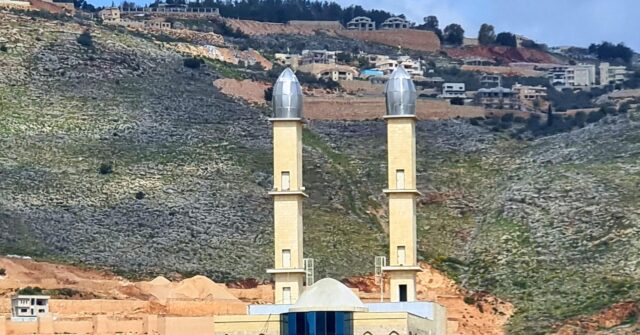A recent attack by Hezbollah resulted in the deaths of two individuals and injuries to several others in the town of Majd al-Krum, located in northern Israel. The victims were identified as 21-year-old Hassan Suwaed and 25-year-old Arjwan Abd al-Halim Manaa, who succumbed to injuries sustained when a rocket struck the gym where they were exercising. The attack highlighted the ongoing conflict involving Hezbollah, the Iranian-backed group that has been increasing its hostilities against Israeli targets. Initially, reports suggested that Suwaed and Manaa were in critical condition, along with a third individual who was reported as severely wounded, and several others suffering from lighter injuries.
The Israel Defense Forces (IDF) reported that approximately 30 rockets had been launched from Lebanon towards northern Israel, with some intercepted while others successfully struck their targets. Following the attack, Magen David Adom (MDA), the national emergency service, reported a total of three individuals requiring evacuation and treatment at The Galilee Medical Center due to their injuries. This incident contributes to a broader narrative of escalated tensions along the Israel-Lebanon border, marked by frequent military engagements and bombardments that have taken a toll on both sides.
Hezbollah has been actively launching rocket attacks and deploying drones across the border since October of last year, targeting both military and civilian installations within Israel. For weeks, the IDF has been conducting operations in southern Lebanon, aiming to dismantle Hezbollah’s operational capabilities and military infrastructure near the Israeli border. The ongoing conflict has seen significant incidents, including one in July where a Hezbollah rocket tragically killed 12 Arab children playing in a recreational area in a Druze community within the Golan Heights of Israel.
The recent chaos highlights how volatile the situation has become in the region, especially for Arab communities living in proximity to the conflict. The residents of Majd al-Krum, a predominantly Arab Muslim town, found themselves caught in a deadly crossfire, raising questions about the impact of regional conflicts on civilian life and safety. The attack has raised alarm not only for the immediate victims but also for the broader Arab population in Israel, as they grapple with the consequences of such violence in their neighborhoods and the psychological aftermath of living in a conflict zone.
The broader implications of these aggressive military engagements draw attention to the struggles faced by non-combatants, emphasizing the urgent need for conflict resolution and the establishment of effective diplomatic channels to mitigate violence. As conditions worsen, international observers and diplomats must navigate a complex landscape where military actions by one group can disproportionately affect innocent lives, demanding urgent humanitarian attention. The situation underscores the interconnectedness of local and regional dynamics, necessitating a holistic approach to peace and security that addresses the underlying causes of hostility.
Moreover, the persistent violence underscores the overarching geopolitical tensions involving Iran’s influence through Hezbollah and other proxies in the region. Given the historical animosities and evolving political landscape in the Middle East, the potential for further escalations remains high. Continuous monitoring and engagement from international parties will be essential in addressing the humanitarian crisis and curtailing violence, which threatens to spiral out of control if left unchecked. The tragic loss of life in Majd al-Krum serves as a somber reminder of the ongoing human cost of conflict and the urgent requirement for a peaceful resolution that protects civilians caught in the crossfire.

